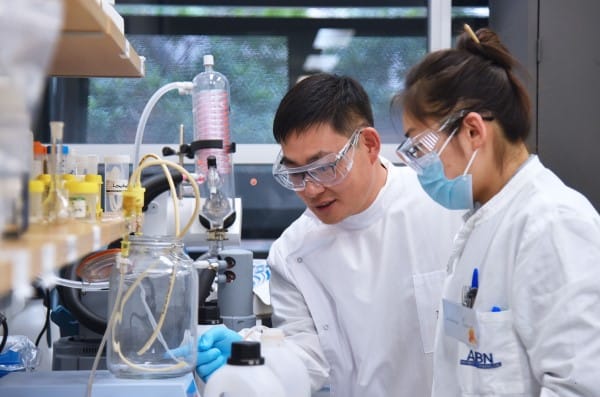Forever chemicals' renewable makeover
A scientific quest to capture and repurpose PFAS chemicals is gaining ground.

Queensland scientists on a mission to remove PFAS chemicals have announced a breakthrough that can also boost renewable energy technology.
This twofold triumph sees technology developed at The University of Queensland (UQ) effectively removing harmful 'forever chemicals' from water and repurposing them to enhance renewable batteries.
PFAS (per- and polyfluoroalkyl substances) are synthetic chemicals widely used in consumer and industrial products due to their heat, stain, grease, and water resistance. However, they are notoriously persistent in the environment and have been linked to various potential human health concerns.
Researchers at UQ’s Australian Institute for Bioengineering and Nanotechnology have created a filter that quickly and efficiently captures PFAS from water. This filter employs a patented sorbent solution that uses ion-exchange technology to isolate and remove PFAS particles as water flows through it. The prototype has been successfully tested in the lab.
“Not only does our filter technology remove harmful particles from water, but those captured chemicals are available to be repurposed to help decarbonise the planet.”
But the innovation doesn’t stop there. The captured chemicals are not discarded; they are repurposed to aid in decarbonising the planet. Polymer chemist Dr Cheng Zhang explains how fluorine-based materials harvested from the filter can be reused to improve clean energy technology.
“Not only does our filter technology remove harmful particles from water, but those captured chemicals are available to be repurposed to help decarbonise the planet,” says Dr Zhang.
“The increasing demand for high-performance rechargeable batteries means manufacturers are constantly searching for new materials that improve the energy density, safety, and cycling stability of batteries. Recycled PFAS has excellent properties for this purpose.”
Tech in action
Dr Zhang, along with Professor Jianhua Guo from UQ’s Australian Centre for Water and Environmental Biotechnology, is preparing for pilot testing in Brisbane and the United States. This project is backed by $1 million from the Advance Queensland Industry Research Projects program.
Testing is set to take place at various locations, including Brisbane’s Luggage Point Sewage Treatment Plant, in collaboration with water management company GHD, project management firm OCTA, and the Queensland Department of Environment, Science and Innovation.
In the second year of the project, an additional pilot site will be established to further scale up testing.
“These demonstrations will be pivotal to scaling up our filter technology for use in industrial water infrastructure,” says Dr Zhang. “If this testing goes as we believe it will, we hope to reach commercial production within three years.”
Dr Zhang told ABC News that the ultimate plan was to either to create a startup company or licence the technology.





